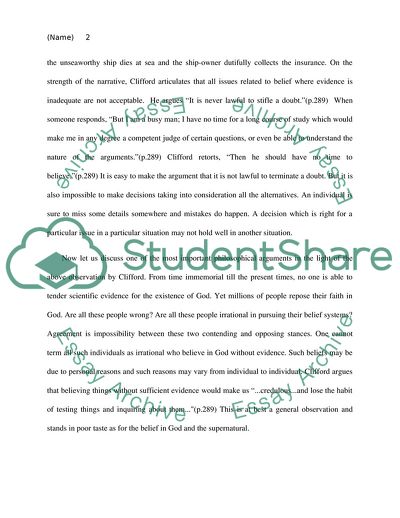Cite this document
(Evidentialism or Non-evidentialism Coursework Example | Topics and Well Written Essays - 1750 words, n.d.)
Evidentialism or Non-evidentialism Coursework Example | Topics and Well Written Essays - 1750 words. https://studentshare.org/philosophy/1831276-evidentialism-or-nonevidentialism
Evidentialism or Non-evidentialism Coursework Example | Topics and Well Written Essays - 1750 words. https://studentshare.org/philosophy/1831276-evidentialism-or-nonevidentialism
(Evidentialism or Non-Evidentialism Coursework Example | Topics and Well Written Essays - 1750 Words)
Evidentialism or Non-Evidentialism Coursework Example | Topics and Well Written Essays - 1750 Words. https://studentshare.org/philosophy/1831276-evidentialism-or-nonevidentialism.
Evidentialism or Non-Evidentialism Coursework Example | Topics and Well Written Essays - 1750 Words. https://studentshare.org/philosophy/1831276-evidentialism-or-nonevidentialism.
“Evidentialism or Non-Evidentialism Coursework Example | Topics and Well Written Essays - 1750 Words”. https://studentshare.org/philosophy/1831276-evidentialism-or-nonevidentialism.


